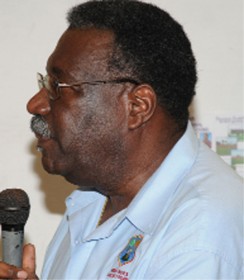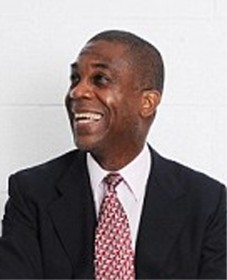Two icons of West Indies cricket, Clive Lloyd and Michael Holding, have blamed both the

West Indies Cricket Board (WICB) and the West Indies Players’ Association (WIPA) for dragging West Indies cricket into its present mess.
Lloyd, captain when the West Indies dominated world cricket in the 1980s and now head of the cricket committee of both the WICB and the International Cricket Council (ICC), charged that current players had become too “greedy” and were not measuring up to the “obscene” amount of money they were being paid.
Holding, one of the group of formidable fast bowlers during Lloyd’s tenure and now an internationally respected television commentator, called the WICB a “dysfunctional organisation” with an “inept staff and an outdated board of directors”.
After meeting with Caricom head, Guyana president Bharat Jagdeo, on Tuesday the WICB and the WIPA agreed to resolve the latest of their several impasses through mediation by former Commonwealth secretary-general Sir Shridath Ramphal.
The standoff, mainly over contracts, led to the withdrawal of all players originally chosen for the recent Test series against Bangladesh and their replacement by reserves. West Indies lost both Tests, as they did in Sri Lanka in 2005 in an earlier players’ strike.
In a report carried yesterday on the website, cricinfo.com, Lloyd and Holding said the

problem would not be solved with a temporary resolution.
As a long-term solution, Holding suggested that both organisations get their act together and become trustworthy.
“They then need to copy the formula used by Cricket Australia to compensate their cricketers,” he advised. “It is a very equitable formula that is not a secret and both their players association and the board are happy with it.”
Lloyd noted that money should not be a problem for the present players.
“When you say the West Indies team is going to withdraw from a series it is not that they are short of money,” Lloyd said. “We have players who are millionaires with an average of 15.00 and they are a first-team pick.”
He was astonished by the fact that only Shivnarine Chanderpaul, Ramnaresh Sarwan and Chris Gayle of the first-team batsmen average over 35 in Tests and none of the bowlers average under 32 runs per wicket.
“We have players who are being paid US$500,000 or more and they do not pay a cent in any tax,” he said. “We are the only country where players don’t pay any tax.”
Holding said the WICB needs to “realise they are dealing with a modern game and changing times”.
“They have been left behind due to their inept staff and an outdated board of directors, most of whom take up space instead of offering something to the organisation or the game,” he added.
As for the WIPA, Holding wondered whether certain individuals were using the organisation to actually settle personal scores with the board.
“Have they [WIPA] ever produced a list of members to show whom they represent?,” he queries. “Are people involved with their organisation carrying chips on their shoulders or grouses with the board from their playing days?”
Lloyd was also critical of the WIPA, the players’ representative body headed by former West Indies leg-spinner Dinanath Ramnarine who quit Test cricket in 2002, aged 27, to revive the organisation.
“WIPA is not trying to achieve anything but strengthen their bank balance,” he charged. “When you have an association that caters to various needs of the players, you need to love the game and I do not think we have a lot of people at WIPA who are in love with the game.”
Both Lloyd and Holding agreed that there needs to be a change in the governance of West Indies cricket.
“It can’t be a case where a board member is there for life,” Lloyd said. “The solution is to include former players into its set-up as that would help administrators manage the game better once they understand clearly where the players are coming from.”
Holding was worried over the effect the continuing chaos was having on potential sponsors.
“The performances on the field have not been heart-warming and if the people entrusted to run the game, the people the sponsors will be interacting with directly, are made to look so incompetent, what will encourage them to get on board with West Indies cricket?,” he asked. “Nothing works without sponsorship in the Caribbean. It is not a rich part of the world.”





